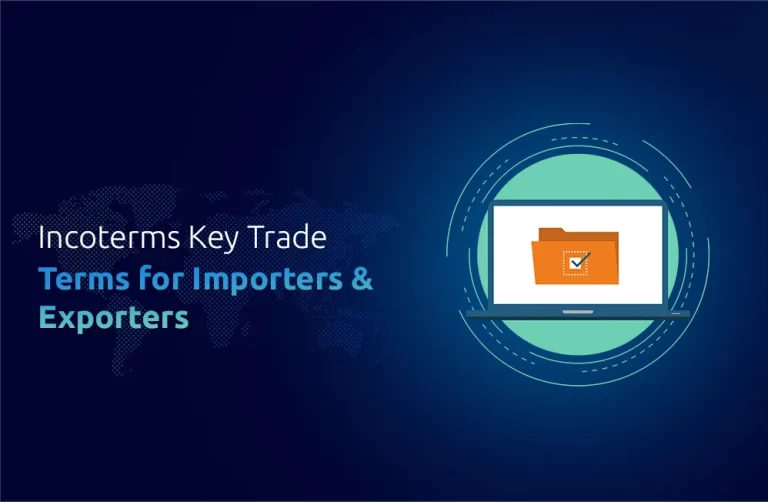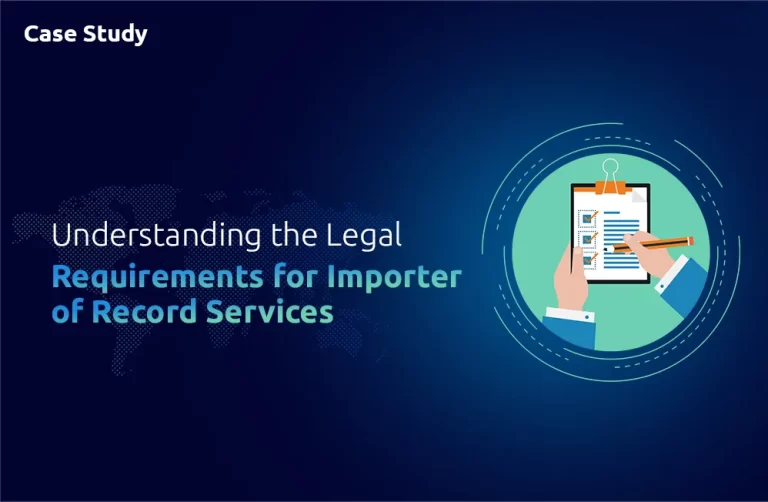What does Importer of Record (IOR) mean?
An Importer of Record is a business responsible for confirming that imported goods follow all customs regulations in the location country. The importer of record definition includes managing duties such as obtaining import permits, paying duties and taxes, and confirming goods meet local regulatory guidelines. In simpler terms, when a company does not have a legal presence in Taiwan, an IOR takes on the official responsibility for customs clearance and regulatory approval.
Key Responsibilities of an IOR in Taiwan
Customs Compliance – The IOR confirms that all imported goods confirm to Taiwan’s customs regulations, such as accurate categarizations under the Harmonized System Code (HS Code) or HTS Harmonized Tariff Schedule.
Tax and Duty Payments – The IOR is responsible for calculating and paying tariffs, and confirming approval with local tax laws.
Document Managing – The IOR gives all required import paperwork, such as invoices, packing lists, and authorize, simplifying the clearance process.
Collaborate with Customs Brokers – Working with a customs broker confirms that logistics are cleared quickly and effectively, and helps away from delays.
Regulatory Approvals – Specific sectors such as medical and aviation, require paperwork and approvals from local authorities before imports are allowed. The IOR manages these law’s requirements.
Confirming Timely Delivery – IORs coordinate logistics to minimize shipment delays and avoid supply chain disruptions.
Why Use an Importer of Record in Taiwan?
Using an IOR in Taiwan ensures compliance with local laws, leaving the risk of delay or punishment in shipment. For unfamiliar businesses from Taiwan’s import rules, an IOR provides specialization in logistics, incorporation, and documentation making the import process uninterrupted. Companies importing IT, medical, and motor vehicle products benefit from IOR services, as these industries often require strict adherence to regulatory standards.
Also, Taiwan benefits from various business agreements, such as the generalized system of preferences, which allows some imports to benefit from low taxes. Under the harmonized system code, proper categarization of goods is important for businesses looking to improve costs while maintaining agreement.
Insights into IT, Aviation, Medical, and Automotive Industries in Taiwan
Taiwan is a global leader in the IT sector, creating major semiconductor industries and electronics organizations. The country’s aviation industry is growing, with increasing demand for aircraft and maintenance parts. In the medical field, Taiwan imports advanced healthcare technologies, necessitating strict agreement with regulatory standards. The automotive industry depends on Taiwan’s strong supply chain network for importing parts and assembling vehicles.
By using an IOR in Taiwan, businesses working in these industries can guide difficult regulations effectively, benefiting from smooth customs clearance and reduced supply chain network. The importer of record commitment extends to confirming proper tariff management, classifying goods accurately under the harmonized system code, and fulfilling all agreement requirements.
Conclusion
Guiding Taiwan’s import laws requires a deep knowledge of customs procedures, tax guidelines, and regulatory requirements. An Importer of Record plays a critical role in confirming that businesses can import their goods smoothly without any legal or shipping issues. Major logistics hubs in Taipei, Kaohsiung, and Taichung, Taiwan give a key entry for global businesses.
By using IOR services, organizations can avoid regulatory risk, improve their supply chains, and confirm smooth customs clearance. In case dealing with IT hardware, medical equipment, aviation parts, or automotive components, an experienced IOR simplifies the importation process while confirming full agreements with Taiwan’s trade laws. Partnering with a dependable IOR allows businesses to focus on growth while confirming their supply chain works smoothly and effectively.
DID YOU KNOW?
In 2024, the amount of Taiwan’s GDP (GDP) was around 25.5 trillion new Taiwan dollars or US $ 793.2 billion (at current prices). In 2024, the annual GDP growth increased to 4.3 percent and in 2025 it was estimated to reach 3.3 percent. The quarterly GDP growth reached 1.8 percent in the fourth quarter of 2024.








